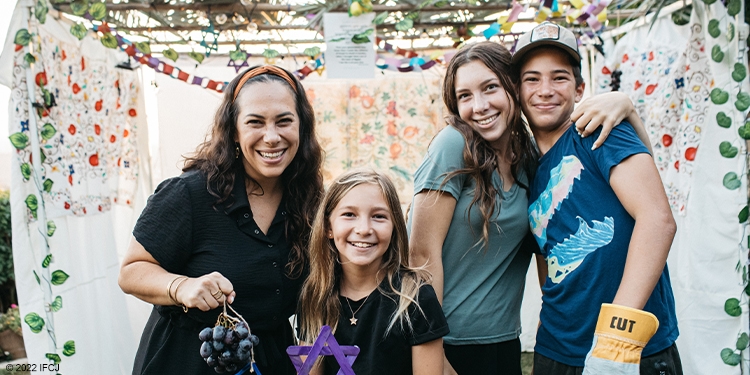The Miracles of Sarah’s Tent
Rabbi Yechiel Eckstein | November 24, 2016

Sarah’s tent: Isaac brought her into the tent of his mother Sarah, and he married Rebekah. So she became his wife, and he loved her; and Isaac was comforted after his mother’s death. — Genesis 24:67
The Torah portion for this week, Chayei Sarah, which means “the life of Sarah,” is from Genesis 23:1—25:18 and the Haftorah is from 1 Kings 1:1–31.
Nothing can replace the loss of a loved one. But it’s common to feel some degree of comfort when a new love is found – like a new spouse, friend, or baby. So it’s not surprising Scripture tells us in Genesis 24:67 that “Isaac was comforted after his mother’s death” after he married Rebekah. However, the Jewish sages tell us that Isaac was comforted by much more than the love of his wife. With Rebekah’s entrance into Isaac’s tent, a part of Sarah returned, too.
Jewish tradition teaches that while Sarah was alive there were three constant miracles in her home. The first miracle was that the candles Sarah lit on Friday night to welcome the Sabbath kept burning throughout the week until it was time to light them again. The second wonder was a blessing in Sarah’s dough — the bread she baked never got stale or moldy (no preservatives added!). The third miracle in Sarah’s tent was that God’s Clouds of Glory always rested above her tent. There was always a palpable presence of God.
When Sarah left this world, the miracles left, too. Isaac was left with a gaping hole that wasn’t just the result of losing his mother; he had also lost a mentor, a teacher, and a spiritual giant. But when he married Rebekah he found much of what he had lost. The sages teach that when Rebekah came into Sarah’s tent, the miracles came back, too.
Now, the great wonders that were present in the homes of both Sarah and Rebekah were not random gifts from the Almighty. These gifts simply reflected on the outside the spirit that lived on the inside of the home.
The lasting candlelight was the result of the light that the matriarchs brought into their homes with their warmth, understanding, and insight. Their homes were a place where a person was welcomed, encouraged, and enlightened. The fresh bread was a reflection of the enthusiasm and vigor that the matriarchs brought to serving God every day. Their homes were a place of rejuvenation and inspiration. Finally, the Clouds of Glory were symbolic of God’s constant presence in the matriarchs’ homes. They spoke of Him, prayed to Him, and managed their home according to His ways.
We can make our homes like Sarah’s and Rebekah’s, too. We can make it a place of love and light, a space where people can find rest and be revived. We can make it a godly space that reminds people of God. And just as Sarah’s tent was open on all four sides, making it a welcoming place for strangers and family alike, we can also make our homes an inviting place for God and all who enter.


